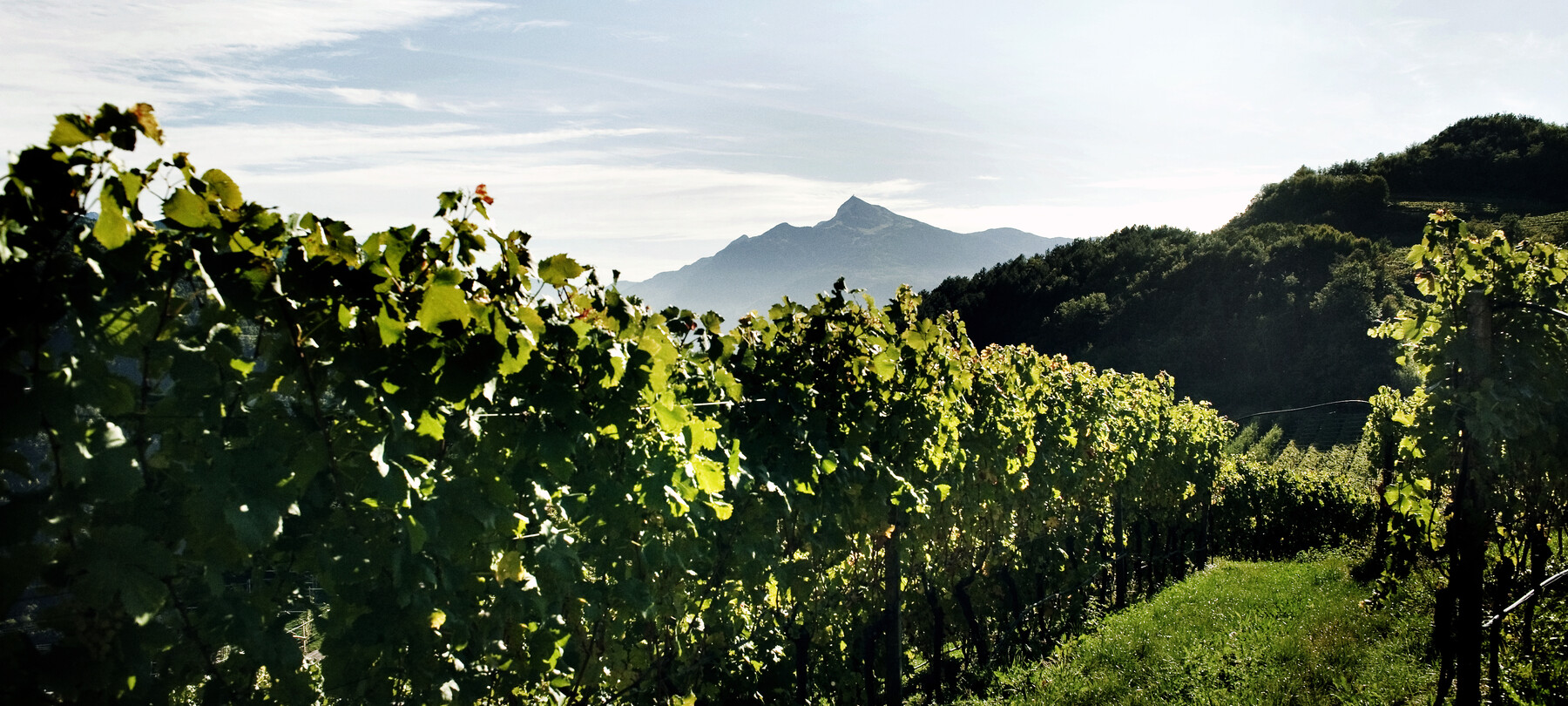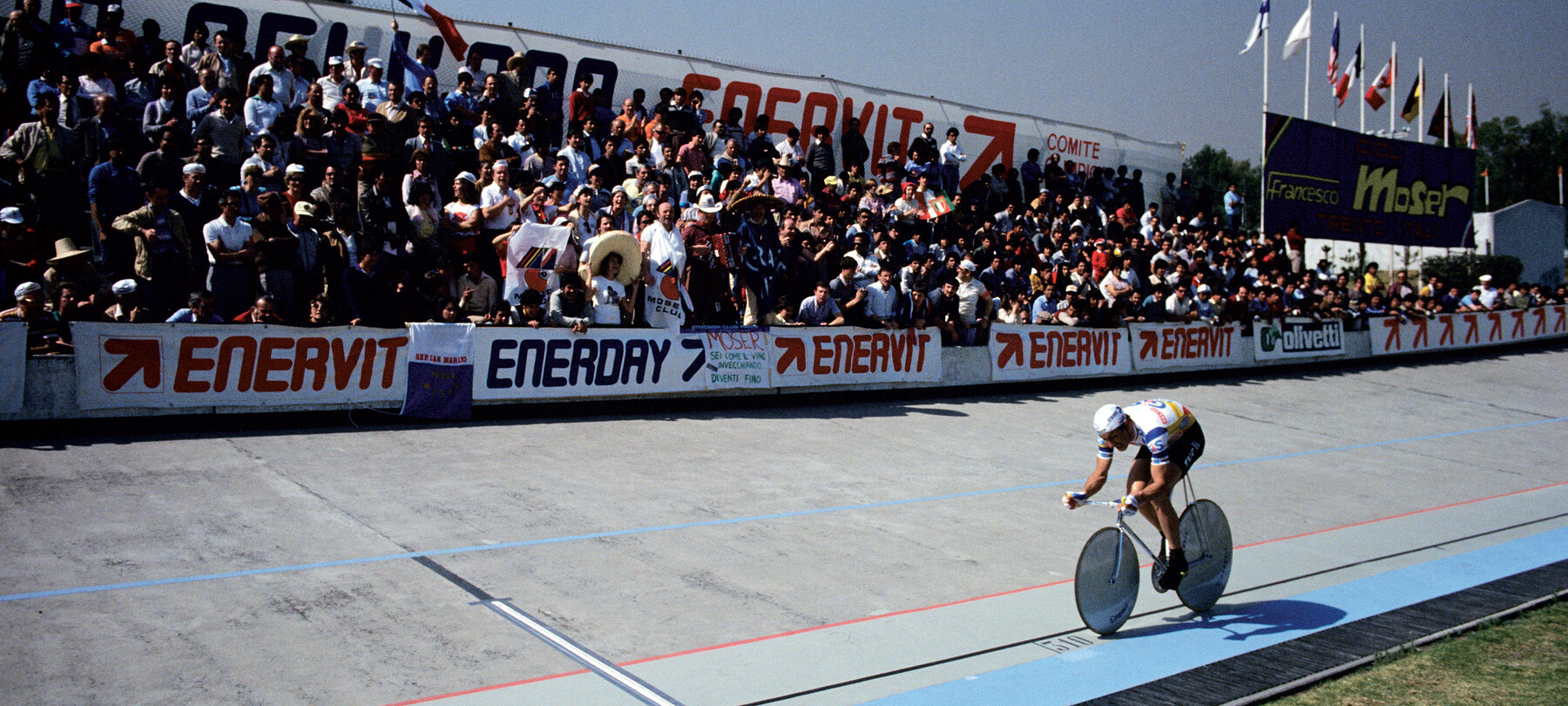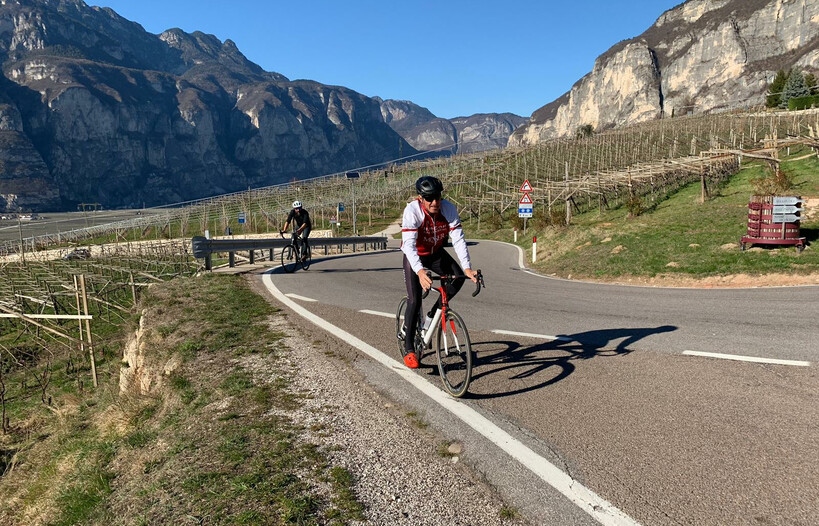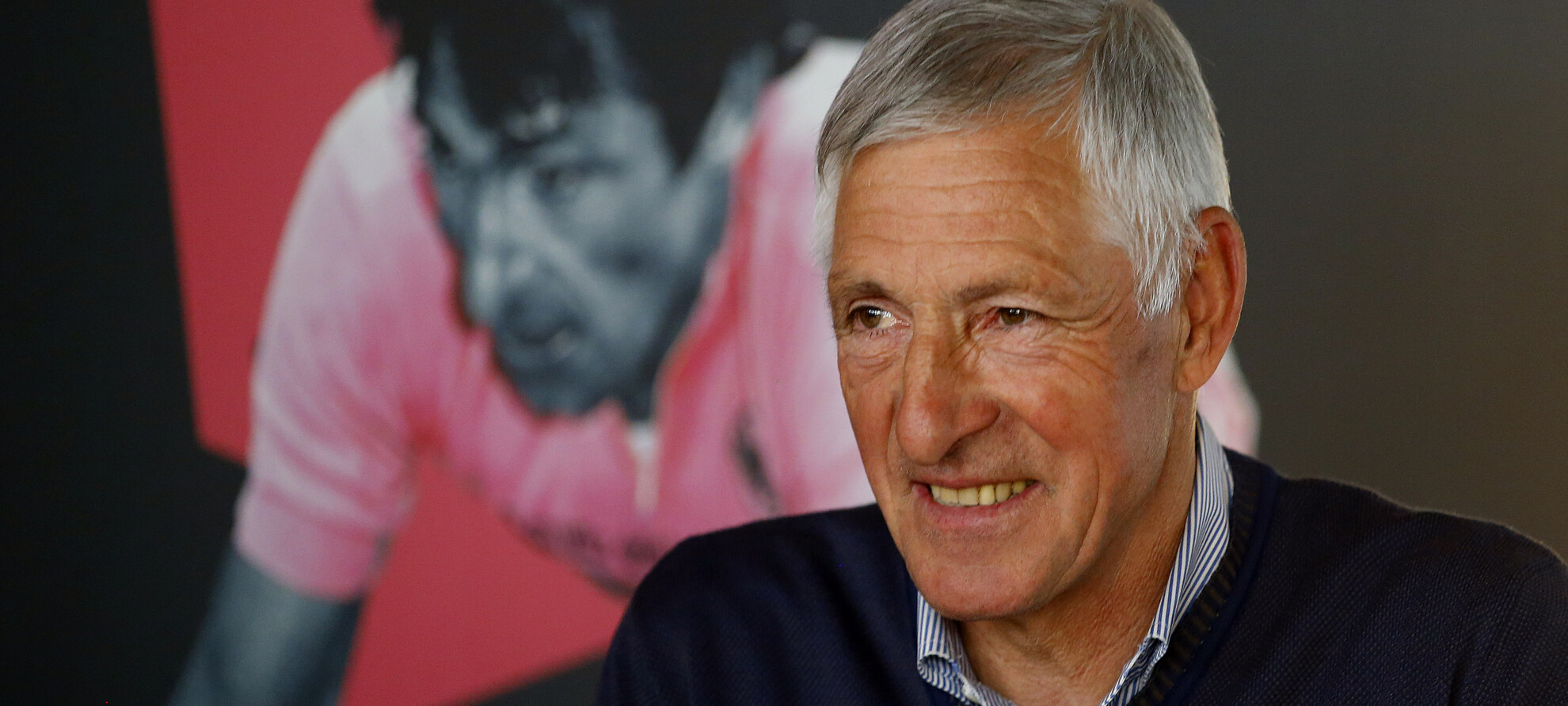Interview with Trentino cyclist Francesco Moser
The tale behind the triumphs of his life: from the saddle of a bike to the sparkling bubbles of Trentodoc wine
There are some sporting champions who continue to hold a special place in the hearts and memories of all, in a way that goes beyond passion for the game, even after the end of their careers. Halls of fame, victories and records are important, but a true champion is an athlete who has more than a list of triumphs to their name, like personality, willpower, and character: qualities that go beyond any sporting performance.
Francesco Moser — or Checco, as he is affectionately known in Trentino — belongs in this select category of champions. Sheer strength of will saw this legendary cyclist conquer the hearts of all sports-lovers, so much so that he is even now counted among the most beloved Italian former athletes of all time. Originally from Palù di Giovo, a little village in Trentino’s Valle di Cembra, Moser has conquered the most important stages in the biking world: Japan, Venezuela, Mexico… but his heart was always here, among the vineyards, mountains, and people of his homeland.

How did the story begin, Francesco?
Palù is the linchpin that my whole life has revolved around. Over the years, I've travelled all around the world with my racing: I won the rainbow jersey in Venezuela, I was the first Italian cyclist to compete in Japan, I set the Hour Record in Mexico, and of course I competed throughout Europe for 15 years as a professional racer. But no matter where I went or how long I stayed away from home, what mattered to me was returning to Palù after every competition, to the vineyards of my mountains and my people.
How did you get started in racing?
One day towards the end of June, my brother Aldo suggested that we should go for a bike ride. I had turned eighteen just a few weeks earlier, and I was a shy young man of few words. I was just a boy from a family of eleven children, who had lost his father too early, and worked in the fields without paying any attention to time as it passed by. I always had that feeling of a lump in my throat, a sense of anxiety within me. That day, I made the effort for once to put everything else out of my mind as I pedalled, just enjoying the feeling of the wheels spinning fast along the asphalt, the roads and mountains around me.
I made it to the top of the climb leaving Aldo far in my wake. When you’ve almost reached the highest point of some new and unknown point, it’s natural to be curious about what’s on the other side, to want to go take a look. You become eager to travel and discover new places, and that’s what’s so wonderful about cycling.
When we got back home, I said that I’d try racing in two or three competitions, just to try it out, and then if I was able to win them immediately, I’d continue. I won straight away, and so I kept going. The truth is, nobody was as surprised as I was”.

How did your career get started?
“There were eleven of us at home, brothers and sisters. Aldo, Enzo and Diego were professional cyclists, all of them older than me. I started competing later, following in their footsteps. It wasn’t easy: I've always been a little reserved and used to speaking my thoughts frankly, even when my ideas might have caused some commotion.
From the very beginning, I always seemed destined to open up new avenues. One year, when I was racing, I refused to take part in the Giro d’Italia because the route wasn’t suited to my own characteristics. Up until then, the organisers had taken it for granted that they made the decisions and the riders then had to adapt, and just stick to the racing. Fortunately things have changed now: more consideration is given to riders’ opinions today, thanks in part to decisions like the one I made back then.
You’ve won 273 races over the course of your career: it would be impossible to list them all, but they include the Giro d’Italia, a World Championship, three Paris–Roubaix titles and Milan–San Remo. Which of your victories means the most to you?
More than any individual race, it’s the bigger picture that counts. Each of my victories is a tile in a mosaic of achievements, and I include the Hour Records in that too. All of the races I won were hard fought, each one the culmination of a tale of hard work and dedication. That’s what cycling is about, after all: achieving the impossible with perseverance and training.
And Paris–Roubaix?
I won that three times. On the day of my first victory, in 1978, there was sleet when we set off. Then during the race itself, we had a bit of everything: rain, sunshine, snow and wind. For Belgians, the race to Roubaix is sacred. 22 kilometres out from the finish line, I made my move. Maertnens and Raas tried to catch up with me, with De Vlaeminck hard on my heels, but I held out. As soon as I entered the velodrome, the spectators jumped to their feet: applauding and chanting my name, all for me. The memory is crystal clear in my mind, more so than the two subsequent victories, and I still get goosebumps thinking about it.

And of all your successes, which do you still consider special?
The Hour Record in Mexico City. Nobody seemed to believe that I had a chance of beating Merckx’s record. Apart from Alfredo Martini, the coach of the national road cycling team, no other coach or sports director came over from Italy to watch me. There weren’t even many journalists there.
I was helped onto the bicycle — the shoes were fixed to the frame itself, so being in the saddle meant becoming one with the bike. The most optimistic predictions were for a result of around 51.2 km/h. On my second attempt, I reached 51.151 kilometres. [Francesco has named his sparkling mountain wine in tribute to this record ].
Before I beat the record, people thought that the time of year I’d chosen for my attempt was wrong, my position on the bike was unnatural, the lenticular wheels were too heavy. After I broke the record, instead, everybody was in complete agreement with the choices made by me and the coaches. In that sense, it wasn’t a record that I shattered, but a certain way of thinking about cycling.
And then came the third act of your career, the ultimate accomplishment of winning the 1984 Giro d’Italia, which concluded in Verona.
I was 1’21” behind the pink jersey, Laurent Fignon. I made it up, and more besides. I remember entering the Verona Arena and knowing I’d done it, I was finally about to win the Giro. The team car behind me had given me the times, kilometre after kilometre, and by then I was sure of my victory. Just before the finish line, which was inside the Arena, they turned the team car off the route so I entered the underpass alone.
The roars from the spectators got louder and louder as I came closer to the entrance of the Arena. I’d cycled the entire stage with crowds shouting on either side of me, I’d been under pressure for weeks, but there in that dark underpass, for just a few seconds, I was finally alone and I relished all ten metres of it. Beyond that short stretch of darkness, I could see a bright light with pinkish outlines. Entering the amphitheatre was an explosion of light and joy, with a deafening roar of people cheering for me.
After making it onto the podium three times, and taking second place behind Saronni the year before, I’d finally won the Giro d’Italia too. My most treasured victories were all like that, a sort of personal rebirth. At the end of the day, that’s what cycling is about: trying to find the best version of yourself”.



